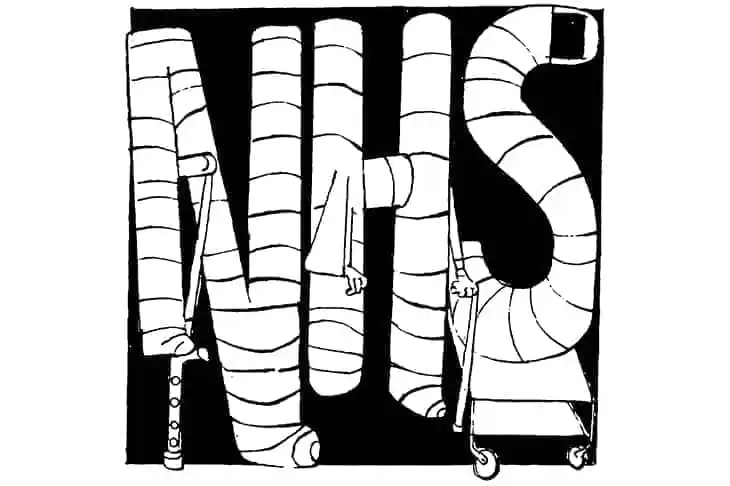One of the most remarkable things about the National Health Service is the extent to which it avoids national criticism. Only a few years ago it was borderline blasphemy to point out problems with the NHS; for politicians, to do so was to dig your own political grave.
For the first time in the survey’s history, the majority of the British public are ‘dissatisfied’ with the health service
In the aftermath of the pandemic, things have started to change. Several politicians have spoken about the poor outcomes delivered by the health service. Most notably the Labour party is distinguishing itself from the Tories, not simply by offering more money, but by insisting on patient-centric reforms too. Shadow health secretary Wes Streeting is not afraid to ruffle feathers by pointing to the health outcomes the systems deliver, which show it is not the ‘envy of the world’ – a common talking point of all major parties before Covid struck.
But perhaps even more importantly there has been a shift in public opinion. The latest British Social Attitudes survey, conducted by the National Centre for Social Research and published today, shows satisfaction with the NHS at a record low. For the first time in the survey’s history, the majority of the British public are ‘dissatisfied’ with the health service, as they struggle to get access to timely care.
It’s a dramatic fall from grace: three years ago roughly a quarter of the public said they were dissatisfied. But access to care fell dramatically over the same period of time, as decisions were made to suspend so much non-Covid care during the pandemic, leading to a 7.2 million wait list on NHS England today. According to The Spectator’s Data Hub, three million people were waiting more than 18 weeks for treatment in January this year, while nearly 400,000 were waiting for over a year.
Long wait times were cited by nearly 70 per cent of people as their primary reason for dissatisfaction. The BSA survey, which was carried out last autumn, also shows that satisfaction with GP services fell by three percentage points, down to 35 per cent – the lowest level ever reported.
When it comes to the NHS, disappointment is nothing new: the health system has underperformed on patient outcomes compared to its international neighbours for many years. But a national devotion to the service led to the glossing-over of its major structural problems. Those problems are impossible to ignore now, and it seems the public have come to a breaking point about what they will tolerate.
Will this be a bigger headache for the NHS or the government? While only 29 per cent of respondents said they were satisfied with the NHS, 50 per cent said that not enough money is spent on it – a complaint about government funding, not the service itself. In terms of healthcare spending as a share of GDP, the UK ranks in the top five of OECD countries. But with the narrative set by both Tory and Labour politicians for years that any issue comes down to funding, it’s not especially surprising that frustrations with the health service have led to calls for more cash. The trajectory of satisfaction is not helpful for the government either: a record high 70 per cent was reached in 2010, when the Tories took power, and this now sits at a record low 12 years on.
But it does not bode well for the NHS either, that the public are growing in confidence to comment honestly on the quality of care they are receiving. While support for universal access to healthcare remains strong (a tenant of healthcare systems in almost every developed country worldwide) it is dawning on the public that the way the NHS delivers on that principle is by no means satisfactory.







Comments